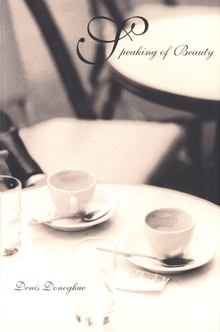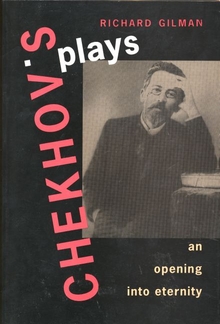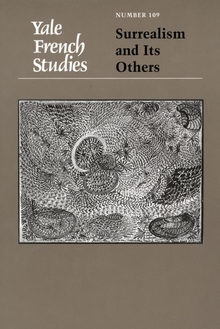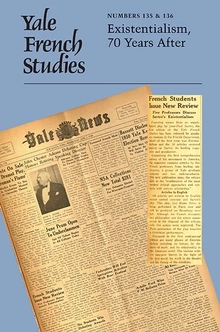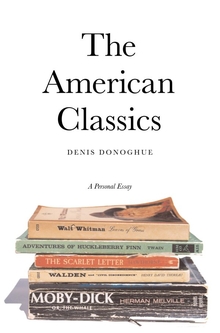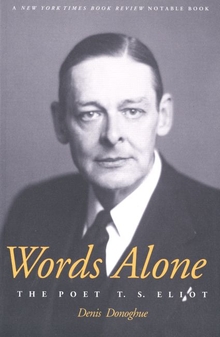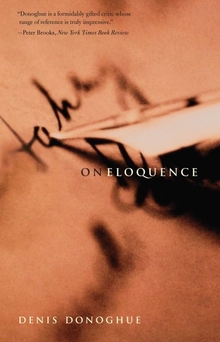Speaking of Beauty
WARNING
You are viewing an older version of the Yalebooks website. Please visit out new website with more updated information and a better user experience: https://www.yalebooks.com
Denis Donoghue
Out of Print
Writing about his newest book, Denis Donoghue says, "I do not offer to say why Jennifer Lopez and Brad Pitt are beautiful, or what cultural axioms are at work in the common agreement that they are. Instead I think of beauty as a value—like its companions, the true and the good—and I ponder the ‘words of tribute’ that are devoted to it." Here one of the foremost living critics of the English language, Denis Donoghue, examines instances of beauty and the language that beauty inspires.
An appreciative and wide-ranging reader, Donoghue discusses Kant, Schiller, Keats, Hawthorne, Dickinson, Ruskin, Henry James, Proust, Yeats, Housman, Woolf, T. S. Eliot, and many more. He considers some of the main theories of beauty and their terms of reference and appreciation. And he examines the relation of beauty to form: form as found in landscape, persons, poems, paintings, and musical phrases; and form as in the difficult question of beauty and its wild neighbor, the sublime. Writing with his customary elegance and lucidity, Donoghue tells us that beauty is a topic that has once again become interesting and even fashionable, and in this book he shows how it can be discussed with intelligence and decency.
An appreciative and wide-ranging reader, Donoghue discusses Kant, Schiller, Keats, Hawthorne, Dickinson, Ruskin, Henry James, Proust, Yeats, Housman, Woolf, T. S. Eliot, and many more. He considers some of the main theories of beauty and their terms of reference and appreciation. And he examines the relation of beauty to form: form as found in landscape, persons, poems, paintings, and musical phrases; and form as in the difficult question of beauty and its wild neighbor, the sublime. Writing with his customary elegance and lucidity, Donoghue tells us that beauty is a topic that has once again become interesting and even fashionable, and in this book he shows how it can be discussed with intelligence and decency.
Denis Donoghue is University Professor and Henry James Professor of English and American Letters at New York University.
An alternate selection of Readers' Subscription
“Continuously fascinating, continuously readable, the book speaks of beauty, and of speakers of beauty, in its own calm, steady voice. You won’t want to lay it down.”—Hugh Kenner, author of The Pound Era
“Speaking of Beauty is a beautiful book about beauty. Denis Donoghue’s goal is to recuperate the notion of beauty ‘as a value’ from those theorists who would, like the sophistical Apollonius, in Keats’s Lamia, turn the beautiful Lamia back into a snake. Such theorists see beauty as a tool of capitalist imperialism, or of sexism, or of idolatry, or of some other historically-conditioned ideological or linguistic aberration. Enormously learned, allusive, and citational, Donoghue’s book, though it culminates in Ruskin, is a passionate meditation on what has been said about beauty in the West from the Greeks to the present day. Donoghue performs, like the rider in Wallace Stevens’s essay, ‘The Noble Rider and the Sound of Words,’ a heroic work of conservation and elevation.”—J. Hillis Miller, University of California, Irvine
"Speaking of Beauty is a beautiful book about beauty. Enormously learned, allusive, recuperative, and citational, it is a passionate meditation on what has been said about beauty in the West from the Greeks to the present day. Donoghue performs, like the rider in Wallace Stevens’s essay, ’The Noble Rider and the Sound of Words,’ a heroic work of conservation and elevation."—J. Hillis Miller, University of California, Irvine
“After having spent several decades in the theoretical wilderness, beauty is returning to its rightful place in literary studies. Denis Donoghue’s Speaking of Beauty provides a lucid and compelling explanation of the reasons for this return.”—Roger Lundin, Blanchard Professor of English, Wheaton College
“The speaking that Donoghue does in Speaking of Beauty is conversational, anecdotal, allusive, and circular, although deeply learned for all that, and teeming with insights.”—Edward T. Oakes, First Things
“A learned and deft essay on aesthetics. Not a theorist himself, he has provided interested readers with a valuable guidebook to the convictions of a large number of critics and philosophers.”—Gerhard Brand, Magill’s Literary Annual
"Donoghue talks . . . with a delightful informality and absence of dogma. . . . One of the most charming features of Denis Donoghue’s book is his appendix of ’afterwords,’ brief quotations on beauty from sundry writers revealing, one way or another, their view of the matter."—John Bayley, New York Review of Books
"[An] excellent and eloquent book. . . . [Speaking of Beauty] is at once a book of practical criticism—there are readings of poems by Herrick and Shakespeare—and a genuine enactment of cultural studies, for Donoghue moves between discussions of aesthetics, music, art, landscape gardening and architecture, closing with a magnificent chapter on Ruskin."—James Wood, New York Times Book Review
"A book of practical criticism that is also an enactment of cultural studies, allowing 20th-century literary theorists on board without giving them the wheel; Donoghue, as his title shows, has not abandoned the idea that some things of human making are superior to some other such things."—New York Times Book Review ("And Bear In Mind")
“An eloquent reflection on the language beauty inspires and a careful critique of its place in literary criticism and cultural theory.”—New York Times Book Review (Paperback Row)
“Impressive for [its] accumulated knowledge; [it is] even more impressive for [its] freshness and responsiveness, and for [its] lack of dogma. . . . Speaking of Beauty is at first intriguing, soon exasperating, often stimulating, sometimes exhilarating, and finally inspiring.”—Ron Smith, The Georgia Review
“[A] fine new study of aesthetics. . . . A humane and wide-ranging critic, author or editor of some thirty books, Donoghue makes an engaging guide to a subject too many critics—and artists, for that matter—have shrugged off. . . . Rewarding to read.”—David Mason, The Sewanee Review
“Lucid and illuminating.”—The Times (London)
Named a New York Times Book Review Notable Book of the Year
ISBN: 9780300098938
Publication Date: April 10, 2003
Publication Date: April 10, 2003
224 pages, 5 1/2 x 8 1/4

